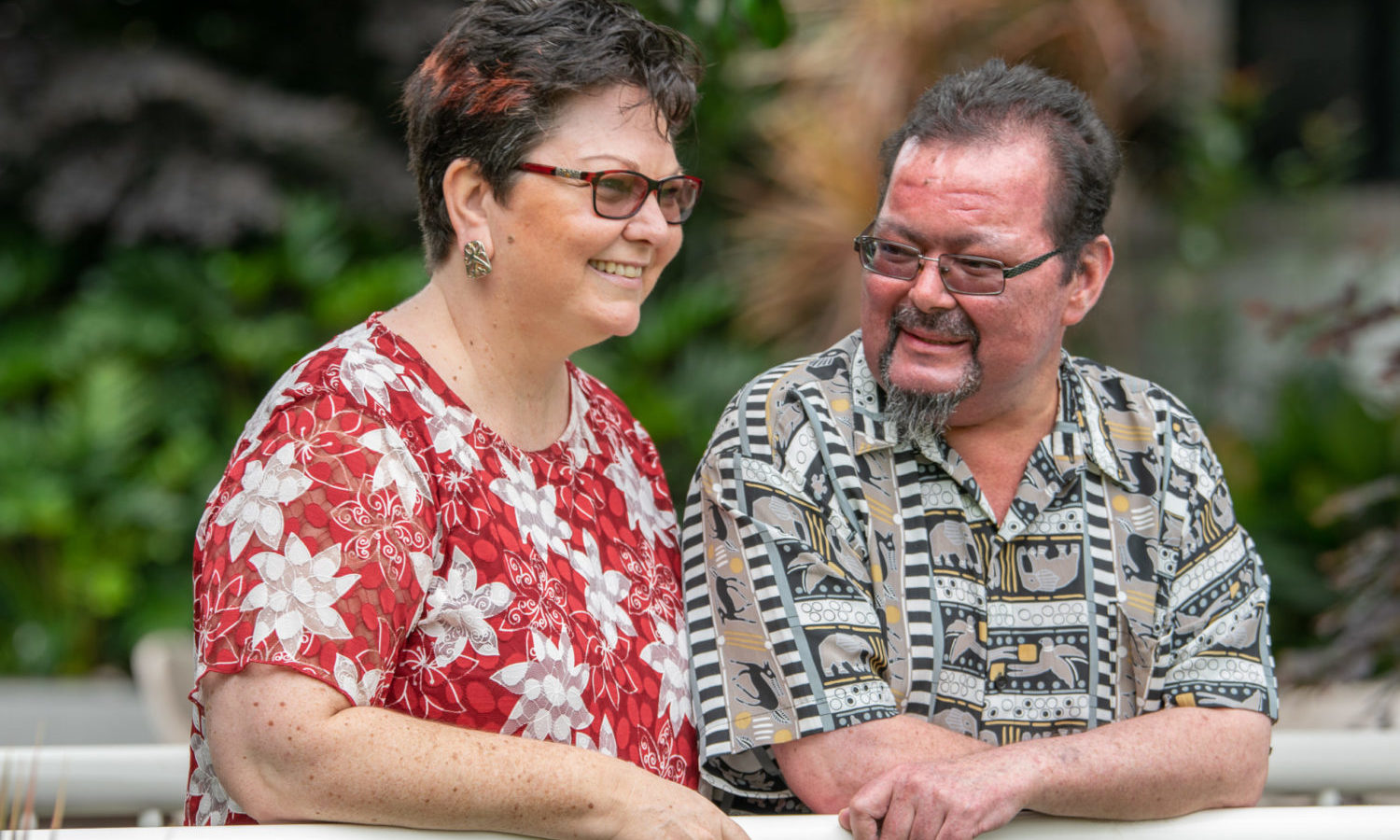Blood cancer doesn’t stop: John-Michael’s story

John-Michael has been living without an effective immune system since his bone marrow transplant to treat his blood cancer nearly a decade ago.
Although he’s now blood cancer-free, he still needs monthly treatment to have a fighting chance against infections. That makes John-Michael one of the more vulnerable members of the Australian community during the COVID-19 outbreak.
He shares with you the ways he’s protecting himself and his wish that people will prioritise their health and hygiene long after the coronavirus has run its course.
It’s taken a global pandemic for people to get a taste of my everyday.
Immunosuppression
The body’s immune system normally makes enough antibodies to fight germs that cause infections. But if you have an immune deficiency, like me, your body can’t make enough of them. I’m at greater risk for infections that could make me very sick.
I’m still immunosuppressed after my bone marrow transplant in 2011. Unfortunately, things haven’t gone well since then and I need a blood product every month that’s a general immune booster, giving me some semblance of an immune system.
Adjusting to the environment
I’m not really going out at all right now. When I do go anywhere it’s only to trusted places. I considered going into the Leukaemia Foundation facilities recently a low risk activity. I know everyone at the Leukaemia Foundation is acutely aware of the need to be hygienic and healthy when interacting with people living with blood cancer.
A safe haven
The year after the transplant, my wife, Belinda, and I bought an acre in a rural area called Lockrose which has proven to be a godsend during this time. We bought it with the view of giving myself a quiet place to recover. We can easily lock the doors and isolate ourselves here. It’s providing the haven I need.
Telehealth and hospital visits
I was in hospital for an unrelated fever a couple of weeks ago and then had follow up appointments yesterday, which were done over telehealth. I just had to go into Toowoomba hospital to have a blood test done beforehand. We were able to go up late in the day, just before closing, when there wasn’t really anyone around.
It’s about adjusting my plans to account for what’s going on and ensuring I pick my times wisely to avoid crowds. There were checkpoints up at the hospital but there wasn’t any staff or patients around because it was a very quiet time of day.
Accessing treatment
I’ve got my monthly treatment soon, which is still going ahead at this stage. It’s three hours of treatment in outpatients and the drug is administered intravenously.
I’m a little concerned about being exposed to something in the general hospital but know the cancer department will be on alert more than usual. I feel safe there. Much the same as at the Leukaemia Foundation; the medical staff are acutely aware of the need to be healthy and hygienic for people with compromised immune systems.
I’ve often said in the event of an airborne crisis I’m going to get myself into Ward 5C, the oncology ward at the Royal Brisbane Hospital. I’ll just wait out quarantine in there because they’re properly set up and even have their own air supply!
Please, stay home
I’m urging everyone to keep up with the self-isolation. If you think you’re an infection risk please stay at home. But, also, don’t go overboard with the panic; try to carry on with life as much as you can while being conscious coronavirus is out there, and you need to behave accordingly. Wash your hands, blow your nose, cover your cough – all those good things your parents taught you. And look out for each other.
Hygiene and cleanliness
I do find it interesting to see all the sudden interest in washing hands and coughing into sleeves. It’s a little bit sad it’s taken a global pandemic for people to start to be concerned. My great personal wish is that when this has run its course, people still maintain that high level of personal hygiene and cleanliness that coronavirus has forced on them.
John-Michael and Belinda’s lasting gift
Since his diagnosis, John-Michael and his wife, Belinda, have a keen interest improving outcomes for people living with blood cancer.
For them, leaving a gift in their Will is the perfect way to be part of something bigger and make a positive difference in the fight against blood cancer.
Click here to watch their gift in Will story and how you too can make sure people living with blood cancer are always well supported, especially during a crisis like COVID-19.
#yourstorycounts
Share your story of living with blood cancer in the COVID-19 crisis.
Tell us how the outbreak has impacted your every-day life and how the Australian community can best support you through this uncertain time.
Also share your message of support for other blood cancer families and advice for keeping safe during the outbreak.
We may then share on this page for our blood cancer community.
Email storyhub@www.leukaemia.org.au with your story.
Last updated on May 24th, 2024
Developed by the Leukaemia Foundation in consultation with people living with a blood cancer, Leukaemia Foundation support staff, haematology nursing staff and/or Australian clinical haematologists. This content is provided for information purposes only and we urge you to always seek advice from a registered health care professional for diagnosis, treatment and answers to your medical questions, including the suitability of a particular therapy, service, product or treatment in your circumstances. The Leukaemia Foundation shall not bear any liability for any person relying on the materials contained on this website.